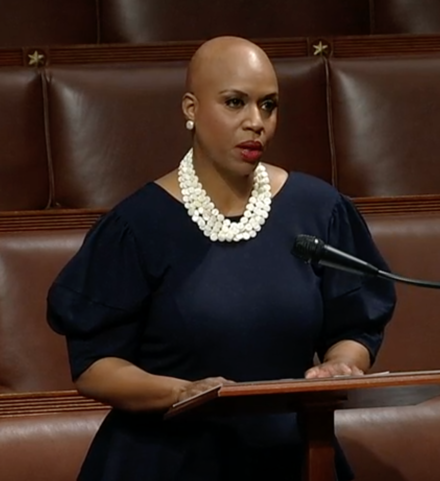Senator Warren, Representative Pressley Push Anti-Racism in Public Health

REPRESENTATIVE PRESSSLEY
Lily Bohlke – Commonwealth News Service
BOSTON — Massachusetts members of Congress are among the sponsors renewing the push to pass the Anti-Racism in Public Health Act
It would expand federal research and investment into the public health impacts of structural racism and require the federal government to take a public health approach to combating police violence.
Rep. Ayanna Pressley, D-Mass, pointed out COVID-19 is the third leading cause of death for Black Americans right now, and police brutality the sixth leading cause of death for Black men.
“We know that Black folks specifically are more likely to contract, be hospitalized and to die from the coronavirus,” Pressley observed. “And with the deployment of COVID-19 vaccines, our community is less likely to have access due to vaccine redlining, misinformation and racial disparities in life expectancy.”
Pressley noted within a three-mile radius in her district, average life expectancy drops from 92 years in Back Bay, a white, affluent area, to 59 years in Roxbury, a low-income and majority Black area. Many Roxbury residents won’t live to age 65, when they would be eligible for the COVID vaccine.
The law would establish a Center for Anti-Racism at the Centers for Disease Control and Prevention, as well as a national law enforcement violence prevention program.
Sarah Coombs, director for health system transformation for the National Partnership for Women and Families, said data collection is going to be key to these efforts.
She noted data shows Black and Indigenous women dying at rates three to four times the rate of Caucasian women due to pregnancy-related causes.
“Black women cannot buy or educate their way to healthier outcomes,” Coombs argued. “My hope is that the Center for Anti-Racism will not just focus on COVID-19 but all of the health disparities that are affecting BIPOC communities.”
Coombs contended too often, people in positions of power point to individual responsibility and life choices for why more Black, Brown and Indigenous people face negative health outcomes, when the disparities are actually caused by centuries of structural racism.
She hopes the bill will help educate more Americans about the real root causes of health disparities.
